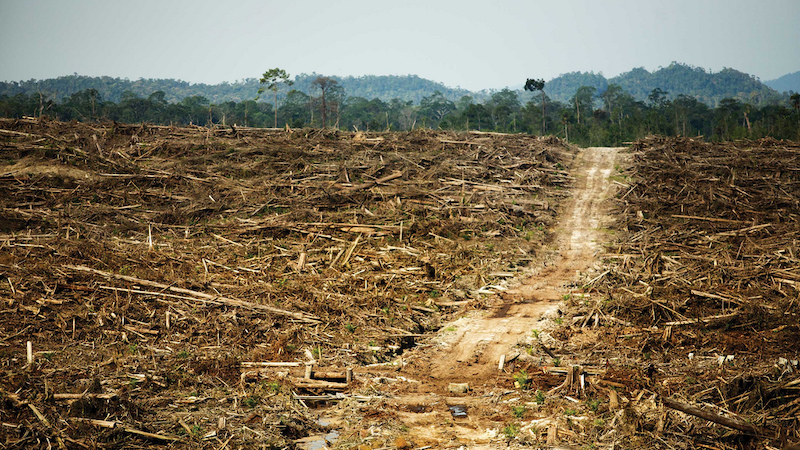The European Commission has classified palm oil biofuels as unsustainable, amid efforts to take aim at deforestation-linked products.
The draft legislation, which has two months to be approved by the European parliament and member states and cannot be amended, means most palm oil biofuels would not be counted toward EU renewable energy targets.
According to Brussels-based NGO Transport & Environment (T&E), palm-oil based biodiesel releases three times more greenhouse gases than fossil fuel diesel, once land use is taken into account. Around the world, the industry has struggled to control its supply chain and rid it of oil grown from denuded rainforests.
A commission spokesperson said the new criteria, which was published on Thursday, were “reasonably strict and significantly reduce the scope of eligible feedstock compared to the current situation”.
Green groups welcomed the draft as a first step toward acknowledging palm oil-linked deforestation, but cautioned against what they described as significant loopholes in the text. Of particular concern are exemptions for palm oil cultivated in plantations measuring less than five hectares, or produced on “unused” land, said T&E.
Palm oil giants such as Malaysia’s FELDA/FGV often base their business model on patchworks of small holdings, the NGO said. It also took issue with the classification of ‘unusued land’, which could benefit local communities by providing habitat or storing carbon.
“The commission sends an important signal by deciding that palm oil diesel is not sustainable,” said Laura Buffet, clean fuels manager at T&E. “But it gives with one hand what it takes away with the other. You can’t label palm oil diesel as unsustainable, then open a loophole as big as the current consumption levels and think people won’t notice. This decision is arbitrary, breaks the mandate the commission had gotten from ministers and the European Parliament and ignores the massive public support for ending the palm oil diesel nonsense.”
The commission spokesperson said the inclusion of palm oil produced on unused land was in line with existing EU definitions and must comply with sustainability criteria.
“Concerning the small holders, there is a lot of potential to improve their agricultural practices. However, smallholders will often lack the administrative capacity and knowledge to comply with complex certification requirements,” the spokesperson said, adding that the act would create a simplified process for small farmers while stopping them expanding into forests.
At the time of writing, a petition circulated by Transport and Environment calling on the EU to halt subsidies to palm oil biofuel has garnered more than 630,000 signatures.
European policy makers have been under pressure from the two largest palm oil producers – Indonesia and Malaysia – which have threatened the block with trade retaliation and challenge through the World Trade Organisation.
Global issues need global coverage
CHN is dedicated to bringing you the best climate reporting from around the world. It’s a huge job and we need your help.
Through our Patreon account you can give as little or as much as you like to support our work. It’s safe and easy to sign up.
